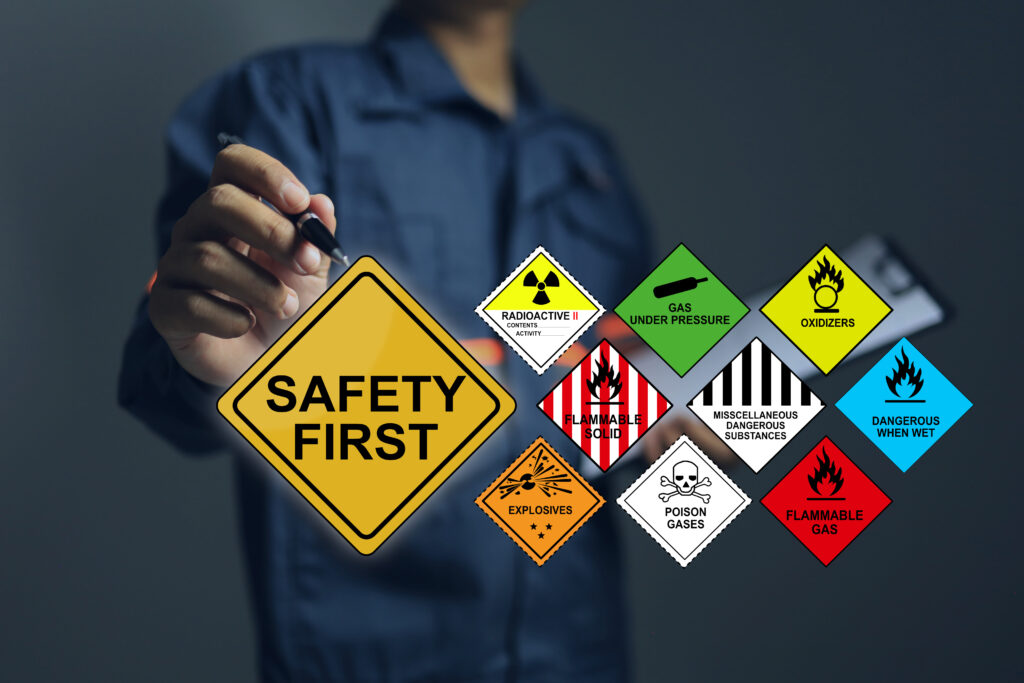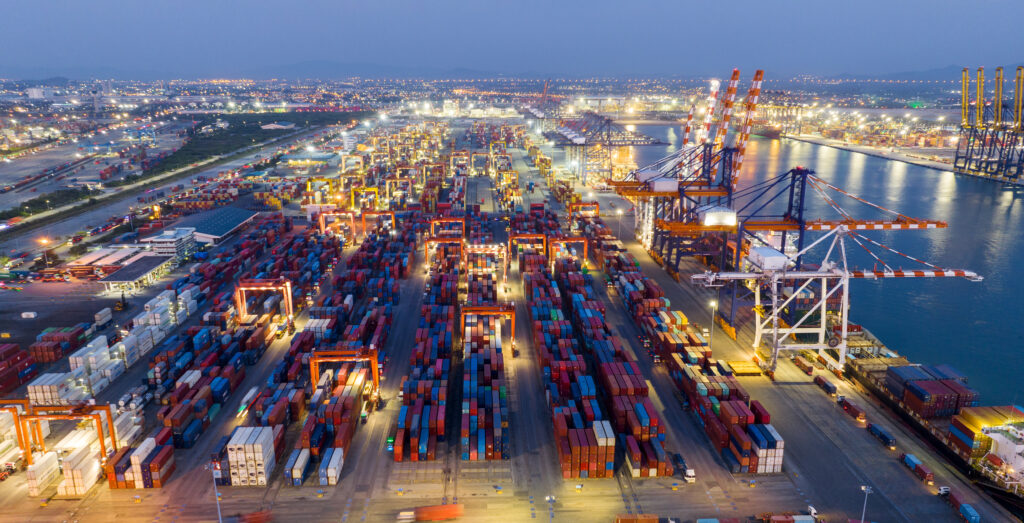Ensuring Safety and Compliance in Hazardous Materials Transport
Importers and exporters of hazardous materials face unique challenges in international shipping. Choosing a hazmat certified international shipping and trucking provider, like PITT OHIO, is not just a preference; it’s a necessity. The risks involved in transporting hazmat products are numerous, and the consequences of not selecting the right provider can be disastrous. Let’s explore why hazmat certification is critical in international freight forwarding.
The Importance of Hazmat Certified International Shipping
Hazmat certification ensures that shipping and trucking providers have the necessary expertise, equipment, and protocols to handle hazardous materials safely and compliantly. This certification is a testament to the provider’s commitment to adhering to stringent regulations, maintaining high safety standards, and protecting public health and the environment.
Ensuring Compliance with Regulations
International shipping of hazardous materials is governed by various regulations, including the International shipping of hazardous materials is governed by various regulations, including the International Maritime Dangerous Goods (IMDG) Code, the Hazardous Materials Transportation Act (HMTA), and the Environmental Protection Agency (EPA) standards. Hazmat certified providers are well-versed in these regulations and ensure that all shipments comply with them. Non-compliance can lead to severe penalties, legal ramifications, and the suspension of shipping privileges. Hazmat certified providers are well-versed in these regulations and ensure that all shipments comply with them. Non-compliance can lead to severe penalties, legal ramifications, and the suspension of shipping privileges.
Mitigating Risks
The transportation of hazardous materials is fraught with risks. These include spills, leaks, explosions, and contamination. Hazmat certified providers have the knowledge and equipment to mitigate these risks effectively. They use specialized containers, secure packaging, and robust handling procedures to prevent accidents. Without these precautions, the likelihood of incidents increases, posing threats to human life, property, and the environment.
Expert Handling and Training
Hazmat certification entails rigorous training for drivers, dockworkers, and other personnel involved in the transportation process. This training covers the identification, handling, and emergency response for hazardous materials. Certified professionals can recognize potential hazards, take preventive action, and respond swiftly in case of an emergency. Untrained personnel, on the other hand, may overlook critical safety measures, leading to accidents and mishandling of dangerous goods.
Risks of Not Choosing the Right Hazmat Certified International Shipping Provider
The decision to opt for a hazmat certified shipping and trucking provider can significantly impact the safety and success of hazmat transport. Failing to choose the right provider exposes importers and exporters to several risks:
Legal and Financial Penalties
Non-compliance with hazmat regulations can result in hefty fines and legal penalties. These financial burdens can cripple a business and tarnish its reputation. The cost of clean-up operations, medical expenses, and legal fees can far exceed the savings from choosing a non-certified provider.
Health and Safety Threats
Hazardous materials can cause serious health issues, including respiratory problems, chemical burns, and poisoning. In the event of an accident, the exposure to these materials can be fatal. Choosing a non-certified provider increases the risk of such incidents, endangering the lives of workers, drivers, and the public.
Environmental Impact
Spills and leaks of hazardous materials can have devastating effects on the environment. Contamination of soil, water sources, and ecosystems can lead to long-term ecological damage. Hazmat certified providers implement stringent environmental protection measures to minimize these impacts. Failure to do so can result in irreversible harm to nature.
The Role of Hazmat Certification for Maritime Terminals and Personnel
Hazmat certification is equally crucial for maritime terminals, drivers, dockworkers, and companies. Here’s why:
Maritime Terminals
Maritime terminals are hubs for the storage, transfer, and shipment of hazardous materials. Certification ensures that these terminals are equipped with the necessary infrastructure, protocols, and trained personnel to handle hazmat safely. It also guarantees compliance with international shipping standards, reducing the risk of accidents and environmental contamination.
Drivers
Drivers transporting hazardous materials must be well-trained in handling and emergency response. Hazmat certification provides them with the skills to navigate the challenges of transporting dangerous goods, ensuring safe delivery to the destination. Certified drivers can respond effectively to emergencies, minimizing the impact of accidents.
Dockworkers
Dockworkers play a pivotal role in loading and unloading hazardous materials. Certification ensures they are trained in proper handling techniques and safety measures. These workers are the first line of defense against mishandling, leaks, and contamination. Their expertise is crucial in maintaining the integrity of hazmat shipments.
Company Compliance
For companies involved in the shipping and trucking of hazardous materials, hazmat certification is a mark of reliability and professionalism. It demonstrates a commitment to safety, compliance, and environmental protection. Hazmat certified international shipping companies are better equipped to manage risks, avoid legal penalties, and uphold their reputation in the industry.
The transportation of hazardous materials is a complex and high-risk endeavor. Choosing a hazmat certified international shipping and trucking provider is essential for ensuring compliance, mitigating risks, and safeguarding health, safety, and the environment. The certification process equips personnel with the knowledge and skills to handle hazmat effectively, reducing the likelihood of accidents and legal repercussions. In the world of international shipping, the right choice can make all the difference. Importers and exporters must prioritize hazmat certification to protect their interests and contribute to a safer and more sustainable future.




